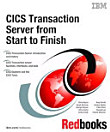Human Evolutionary Demography
About this eBook
By bridging the boundaries between social and biological sciences, the volume stresses the importance of a unified understanding of both in order to grasp past and current demographic patterns. Demographic traits, and traits related to demographic outcomes, including fertility and mortality rates, marriage, parental care, menopause, and cooperative behavior are subject to evolutionary processes. Bringing an understanding of evolution into demography therefore incorporates valuable insights into this field; just as knowledge of demography is key to understanding evolutionary processes. By asking questions about old patterns from a new perspective, the volume—composed of contributions from established and early-career academics—demonstrates that a combination of social science research and evolutionary theory offers holistic understandings and approaches that benefit both fields.
Human Evolutionary Demography introduces an emerging field in an accessible style. It is suitable for graduate courses in demography, as well as upper-level undergraduates. Its range of research is sure to be of interest to academics working on demographic topics (anthropologists, sociologists, demographers), natural scientists working on evolutionary processes, and disciplines which cross-cut natural and social science, such as evolutionary psychology, human behavioral ecology, cultural evolution, and evolutionary medicine. As an accessible introduction, it should interest readers whether or not they are currently familiar with human evolutionary demography.
About the author
Oskar Burger is Senior Research Manager and head of the Quantitative Best Practices Team at OMNI Institute, an applied social science consultancy. He received his PhD in Anthropology at the University of New Mexico in 2011 and worked as a Postdoctoral Fellow at the Max Planck Institute for Demographic Research from 2012 to 2015. He has worked on topics such as aging, population growth, global public health, and program evaluation.
Ronald Lee is an Emeritus Professor of Demography and Economics at the University of California at Berkeley, with a 1967 MA in Demography from Berkeley and a 1971 Ph.D. in Economics from Harvard. His interest in intergenerational transfers in contemporary human societies led him to begin working on evolutionary theories of aging, mathematical life history theory and the evolution of social organization across species.
Rebecca Sear is a demographer, anthropologist and human behavioural ecologist who works on questions of demographic and public health interest, including fertility and reproductive development, child health and mortality, and health inequalities; with a particular interest in how family relationships influence these outcomes. She is co-Founder of the European Human Behaviour and Evolution Association, and currently Director of the Centre for Culture and Evolution at Brunel University London.







